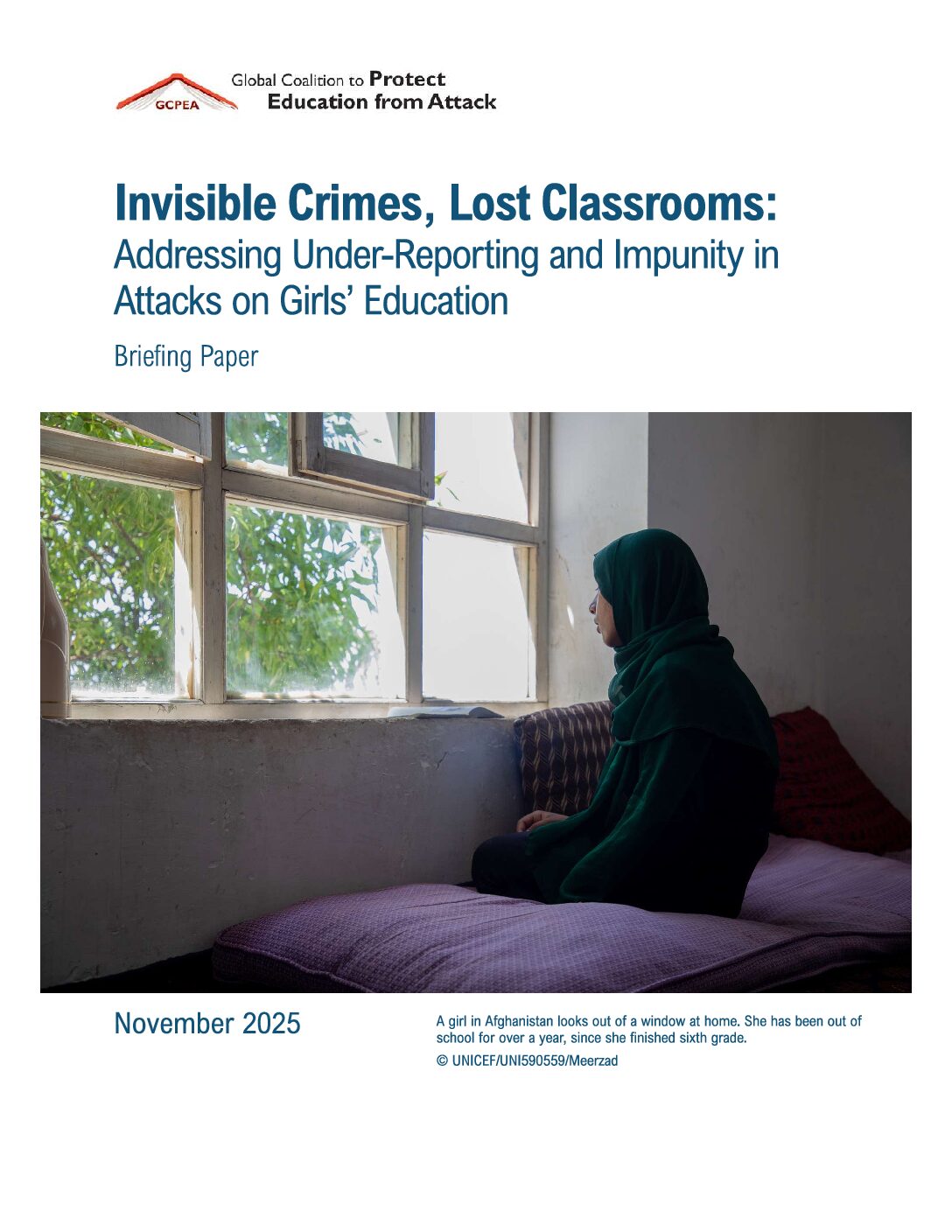GCPEA News
Seychelles and Malawi Endorse the Safe Schools Declaration
Over Half of African Union Member States Have Now Committed to Protect Education
March 10, 2020
(March 10, 2020 – New York) Seychelles and Malawi are the latest countries to endorse the Safe Schools Declaration, an inter-governmental commitment to better protect students, teachers, schools, and universities during armed conflict, said the Global Coalition to Protect Education from Attack (GCPEA) today. This brings the number of endorsing states to 102, including more than half of the current UN Security Council members.
“With the Seychells’ and Malawi’s endorsements, more than half of all African Union members have now joined the Safe Schools Declaration,” said Diya Nijhowne, GCPEA’s Executive Director. “This represents growing consensus that attacks on education will no longer be tolerated on the continent or globally.”
The African Union has made significant efforts to promote safe education. The Continental Education Strategy for Africa (CESA 16-25), as the framework for transforming education and training systems in Africa, calls for greater protection of schools and universities from attacks and military use. The African Union’s Peace and Security Council has also, over the years, welcomed the Declaration.
For example, at its 841stmeeting in April 2019, under the theme of “Children Affected by Armed Conflicts in Africa”, the Council “encouraged all Member States that have not yet done so, to sign the Safe Schools Declaration.” More recently the African Committee of Experts on the Rights and Welfare of the Child, at its 34th Ordinary Session and during its General Day of Discussion on Children in Armed Conflict in November 2019, “commended those States that have endorsed the Declaration and the Guidelines,” while expressing “concern that schools have been used for military purposes in many countries in Africa”.
By implementing the Guidelines for Protecting Schools and Universities from Military Use during Armed Conflict, a central commitment within the Safe Schools Declaration, armed forces and armed groups take concrete measures to ensure that education institutions are not used as bases, barracks, weapons stores, and detention centers. Military use of schools makes them a target for attack by opposing forces and exposes students to heightened risk of physical and sexual violence, as well as recruitment.
Implementation of the Safe Schools Declaration and the Guidelines has made learning and teaching safer for students and educators in Africa, particularly in conflict-affected areas. GCPEA’s brief, Practical Impact of the Safe Schools Declaration, presents growing evidence that the Safe Schools Declaration is helping to protect education from targeted and indiscriminate attack during armed conflict.
In addition, mechanisms for coordinating implementation of the Declaration have been set up in several countries. The Education Ministry in Mali established a Safe Schools Declaration National Technical Follow-Up Committee in January 2019. With the support of Plan International and the United Nations Mission in Mali (MINUSMA), the Education Ministry set up technical follow up sub-committees in Tombouctou and Mopti regions to work with local communities to implement the Declaration and the Guidelines. Using the Declaration as an advocacy tool MINUSMA secured the evacuation of two primary schools occupied by armed groups in Tombouctou.
In Nigeria, a national Education in Emergencies Working Group is finalising a draft National School Safety and Security Policy. The Working Group is co-led by the Federal Ministry of Education, UNICEF, and Save the Children and consists of over 50 local and international civil society organizations and government agencies. The Working Group held a training on the Safe Schools Declaration for security agencies across Nigeria in December 2019, and GCPEA presented at the training.
In Somalia, Save the Children and the Government hosted two “Safe Schools Sensitization Workshops” for civil society organizations and ministries in August and September 2019. A key outcome was the establishment of a Safe Schools Declaration Task Force to work towards effective collaboration and coordination in implementing the Declaration.
“The Safe Schools Declaration has saved lives and secured a future for students and their communities in places affected by conflict in Africa and beyond,” said Nijhowne. “Other regions should follow the the lead of African Union members by accelerating endorsement and implementation of the Declaration, a key tool for safeguarding the right to education for all.”



